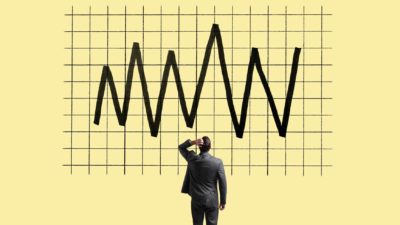Well, that was some weekend.
A contest between good and evil, a flurry of pointed tweets, plenty of conjecture over the law and, finally, an outcome.
And that was just the Rugby on Saturday night.
I'm pleased to say that the goodies managed to triumph, too!
(That was probably the Rugby, too. Then again…)
Okay, okay… settle down. I'm just having a little fun.
Other than the All Blacks and Donald Trump, though, is it possible that the RBA was the Biggest Loser last week?
No, I'm not going to have a rant about the rates decision (though, if I was in their shoes, I would have held at 0.25%), or even the $100 billion being spent to buy government bonds.
Instead, it's the Australian dollar that seems unduly keen to give the central bank a kick in the teeth.
Lower rates and lower bond yields were supposed to help keep the dollar low.
On Tuesday it was around US 70.5c.
By last night, it was riding (relatively) high at a little over US 72.5c.
Oops.
So much for a lower dollar helping our export industries.
It's not the RBA's fault, though. The rising Aussie Dollar had at least as much to do with a weakening Greenback as anything.
And, like a Mack truck in a tug-o-war with a Mini, there's only going to be one winner.
Which does beg the question: wasn't the RBA wasting time trying to create an outcome, playing a game it was only ever going to be a bit-player in?
Wasn't it bringing a knife to the proverbial gunfight?
Probably.
But…
It's easy to think that, right?
Action —> Outcome.
Not so fast.
What we don't know — and can never know — is what might have happened if the RBA hadn't taken that action.
Maybe, in the face of a weakening US dollar, the Little Aussie Battler would be at 73, 74 or even 75 US cents right now.
I mean, it's unlikely the RBA action had no impact at all. And if that's true, the dollar would be higher if they'd done nothing.
But, as I said, we'll never know.
Frustrating, huh?
Unfortunately, that's also just the world we live in.
The boffins call it the 'counterfactual' — what might have otherwise happened if a given action wasn't taken.
Donald Trump has just lost the election. For every commentator who says "Trump should've…" or "Biden won because…" we can reasonably ask how they can ever know.
Was Trump too bombastic? Or would he have garnered even fewer votes if he'd become a shadow of himself?
Did Biden win because his running mate, Kamala Harris, was near-opposite in almost every demographic way, or did that scare off some more conservative voters? Or, is there a third possibility: that it didn't matter either way?
Did the mail-in scare campaign keep Republican voters away? Or did those concerns increase the number of them who voted on election day?
You might have an answer to each of those questions. I have a leaning, too.
But I want you to suspend the urge to jump to any of those conclusions.
I want you to, instead, first think: "We can't know and will never know"
Then, by all means, try to scientifically consider the range of inputs and explanations and come up with a theory.
But, again, try not to just fall back to your current preconceptions.
They're convenient. Hell, they might even be right.
But if we don't seriously, rigorously consider the other options, we're not going to learn anything.
We won't — can't — evolve.
One of my colleagues, Anirban Mahanti, is a zealous Tesla shareholder. And, frankly, that's been a really profitable perspective.
And, given he's a long term shareholder, he's watched the almost constant stream of short-sellers attacking the company's shares for years.
I'm not sure whether he'd consider himself completely unbiased, but he also makes a really interesting point:
The Tesla short-sellers' theses seem to shift (or, less charitably, conveniently change) as their existing theses fall by the wayside.
From "Tesla will never manage to operate a factory successfully" to "The cars catch fire" to "It'll run out of cash" to "It's not cash flow positive", the latest (dominant) short thesis centres around valuation.
Now, I have no view on Tesla. I really (really!) don't want to hear from Tesla bulls or bears.
But given those negative views have been held, in almost-seamless succession, by some of the same people, isn't it just a little bit likely that at least some of them are trying to find a reason to support their preconceived view, rather than letting their thinking evolve with the information?
Maybe — eventually — the Tesla shorts might be right. But it almost certainly won't be because the cars catch fire, or the company isn't able to run a factory effectively.
And if they're eventually right, having just conveniently evolved their short theses to suit their preconceptions, you can put that down to luck, rather than skill.
(And yes, the same accusation can be levelled at many Tesla bulls who, one could argue, might have been irrationally certain in the past, too!)
Investing — done properly — is the art of taking calculated risks. It's keeping a mind that's as open as possible, having enough conviction to buy shares in a given company, but not so much that it blinds you to changing circumstances that might require you to sell. (And the opposite, in the case of short-sellers!)
And, frankly, it's accepting that you'll be wrong, too. Almost certainly more often than you're comfortable with.
Done well, over time, the risks you take will produce a return that more than makes up for the ones that don't work out.
And — here's the discomforting bit for those who prefer easy cause-effect relationships — sometimes you'll be right for the wrong reasons and wrong for the right reasons. Sometimes, the world won't act the way you think it should.
Worst of all, you can apply the same logic to two almost-identical situations, and get a different result in each!
As an investor, you've just gotta make your peace with it. You have to take the world as it is, not the way you wish it was.
And remember, the future is inherently unknowable. All you can do is find an investing process that tends to work more often than it doesn't, and for which the average gains are greater than the average losses.
Leave irrational belief and hope for the football field — and for next year's Bledisloe Cup!








